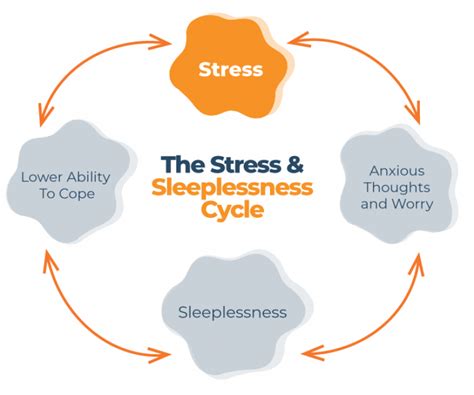Do you often find yourself tossing and turning at night, desperately searching for the elusive realm of deep sleep? Are you tired of waking up groggy and dreading the day ahead? Look no further, for we have compiled a diverse range of insightful techniques to enhance your sleep quality and awaken refreshed.
Recharge your nights with proven methodologies that tap into the power of natural rhythms and holistic well-being. Discover how small adjustments to your evening routine can transform your sleep experience, allowing you to greet each day with renewed vitality. Harness the potential of your nocturnal journey and unlock the secrets to achieving a well-rested and rejuvenated morning.
Uncover the secrets of sleep efficiency, as experts share their wisdom on optimizing your sleep environment and creating a sanctuary that promotes tranquility. Delve into the world of sleep hygiene and explore the myriad of techniques to eliminate disruptions that hinder the quality of your slumber. From minimizing screen time to creating the perfect sleep environment, these tips will help you achieve unprecedented levels of sound sleep.
Explore the art of waking up refreshed, as we unveil innovative strategies to start your day with renewed energy and mental clarity. Step into the realm of mindfulness and indulge in inspiring morning rituals that set the tone for a productive and positive day ahead. Learn the science behind the ideal wake-up routine and implement simple yet effective practices that will transform your sleepy mornings into moments of invigoration.
Establish a Consistent Sleep Schedule

In order to improve the quality of your sleep and wake up feeling refreshed, one important aspect to consider is establishing a consistent sleep schedule. A consistent sleep schedule refers to going to bed and waking up at the same time every day.
Creating a consistent sleep schedule helps regulate your body's internal clock, known as the circadian rhythm. By going to bed and waking up at the same time, your body can establish a predictable sleep routine, leading to better sleep quality and overall well-being.
To establish a consistent sleep schedule, consider the following:
- Set a specific bedtime and wake-up time:
- Choose a time that allows for sufficient sleep (around 7-9 hours for adults).
- Avoid drastic variations in bedtime and wake-up time, even on weekends.
- Create a pre-sleep routine:
- Engage in relaxing activities, such as reading, taking a warm bath, or practicing meditation, before bedtime.
- Avoid stimulating activities, including using electronic devices or consuming caffeine, close to bedtime.
- Create a sleep-friendly environment:
- Ensure your bedroom is dark, quiet, and at a comfortable temperature.
- Use comfortable bedding and a supportive mattress.
- Avoid using electronic devices in the bedroom.
- Avoid napping too late in the day:
- If you feel the need to nap, limit it to 20-30 minutes in the early afternoon.
- Be consistent, even on weekends:
- Avoid sleeping in excessively on weekends, as it can disrupt your sleep schedule.
- Instead, aim for consistency in your sleep and wake-up times throughout the week.
By establishing a consistent sleep schedule, you can optimize your sleep patterns, improve sleep quality, and wake up feeling refreshed and rejuvenated each day.
Create a Soothing Bedtime Ritual
Establishing a calming bedtime routine can significantly improve the quality of your sleep and help you wake up feeling rejuvenated each morning. By incorporating a series of relaxing activities before bed, you can signal to your body that it's time to wind down and prepare for restful sleep.
- Dim the lights: Set the mood for relaxation by turning off harsh overhead lights and opting for softer, dimmer lighting in your bedroom. This can help create a peaceful atmosphere conducive to sleep.
- Unplug from electronics: Disconnect from screens at least an hour before bed. The blue light emitted by phones, tablets, and TVs can interfere with your natural sleep cycle. Instead, engage in screen-free activities such as reading a book or practicing mindfulness.
- Take a warm bath or shower: A soothing soak in the tub or a relaxing shower can help alleviate tension in your muscles and promote overall relaxation. Add some lavender essential oil to enhance the calming effect.
- Practice deep breathing or meditation: Deep breathing exercises or guided meditation can help quiet the mind and release any lingering stress or anxiety. Taking a few moments to focus on your breath can signal your body to enter a more relaxed state.
- Sip a cup of herbal tea: Enjoying a warm cup of herbal tea, like chamomile or valerian root, can have a calming effect on the body and promote better sleep. Be sure to choose a caffeine-free variety to avoid any potential sleep disruptions.
- Journal or write down your thoughts: Putting your thoughts onto paper can help clear your mind and make it easier to let go of any worries or tasks that may be keeping you awake. Consider writing down a few things you're grateful for to cultivate a positive mindset before bed.
- Engage in gentle stretching or yoga: Stretching your body before bed can release tension and prepare your muscles for a night of rest. Gentle yoga poses specifically designed for bedtime can also help promote relaxation and improve sleep quality.
- Use soothing scents: Incorporate aromatherapy into your bedtime routine by using calming scents such as lavender, chamomile, or vanilla. You can use essential oils, a scented candle, or a pillow mist to create a soothing atmosphere in your bedroom.
- Create a comfortable sleep environment: Ensure that your bedroom is cool, dark, and quiet. Invest in a supportive mattress and pillows, and use blackout curtains or an eye mask to block out any unwanted light. Consider using a white noise machine or earplugs to drown out any disruptive sounds.
- Stick to a consistent sleep schedule: Establishing a regular sleep routine can help regulate your body's internal clock and improve sleep quality. Try to go to bed and wake up at the same time every day, even on weekends.
Creating a Sleep-Friendly Environment in Your Bedroom

Ensuring that your bedroom is a conducive space for quality sleep and optimal rest can significantly improve the way you feel in the morning. By making a few changes and creating an environment that promotes relaxation, you can enhance the quality of your sleep and wake up feeling refreshed and rejuvenated.
- Keep your bedroom cool and well-ventilated to promote a comfortable sleep environment.
- Use blackout curtains or blinds to block out any external light that may disrupt your sleep.
- Invest in a comfortable mattress and pillows that provide adequate support for your body.
- Choose bedding made from breathable materials to help regulate your body temperature during sleep.
- Avoid clutter in your bedroom, as a clean and organized space can contribute to a more peaceful mindset before sleep.
- Consider using calming colors, such as blues or neutrals, on your bedroom walls to create a soothing atmosphere.
- Minimize noise disruptions by using earplugs, a white noise machine, or a fan to create a consistent and peaceful background sound.
- Remove electronic devices from your bedroom or limit their use before sleep, as the blue light emitted by screens can interfere with your body's natural sleep-wake cycle.
- Establish a bedtime routine that includes relaxing activities like reading, taking a warm bath, or practicing meditation or deep breathing exercises.
- Ensure that your bedroom is a designated sleep space and avoid using it for work or other stimulating activities.
By implementing these changes and transforming your bedroom into a sleep-friendly sanctuary, you can create an environment that promotes deep, restful sleep and enables you to wake up feeling truly refreshed and ready to take on the day.
Avoiding stimulants before bedtime
In order to enhance the quality of your sleep and wake up feeling rejuvenated, it is crucial to refrain from consuming substances that stimulate your body and mind before retiring for the night. By steering clear of these triggers, you can promote a more restful and restorative sleep cycle.
While it may be tempting to indulge in caffeinated beverages or nicotine products throughout the day, it is important to be mindful of their impact on your sleep. Caffeine, found in coffee, tea, and some sodas, acts as a stimulant that can interfere with the natural sleep process. Similarly, nicotine, commonly found in cigarettes and e-cigarettes, can disrupt your sleep patterns, making it harder to fall asleep and obtain deep, restorative rest.
It is also advisable to limit the consumption of alcoholic beverages in the evening, as alcohol can initially induce drowsiness but ultimately disrupts the overall sleep cycle. While it may initially seem to help you fall asleep faster, alcohol can impede the ability to achieve deep sleep, resulting in a less refreshing waking experience.
Moreover, it is important to be cautious with the timing of your meals, particularly those that are heavy or high in fat. Digesting large meals before bedtime can place an unnecessary strain on your digestive system, potentially causing discomfort and making it harder to fall asleep. Opting for lighter meals and allowing ample time for digestion can significantly improve your sleeping experience.
| Substances to Avoid: | Caffeine | Nicotine | Alcohol | Heavy and fatty meals |
Reducing Exposure to Electronic Devices for Optimal Restfulness

In this section, we will explore the significance of limiting your interaction with electronic devices to enhance your overall sleep quality and awakening sensation. From smartphones and tablets to laptops and TV screens, the excessive use of these devices before bed can disrupt your sleep patterns and leave you feeling fatigued upon waking.
Modern technology has become deeply integrated into our daily lives, offering convenience and entertainment at our fingertips. However, the blue light emitted by electronic devices can suppress the production of melatonin, the hormone that signals our brain when it's time to sleep. Moreover, the content consumed on these devices often stimulates the mind, making it harder to wind down and achieve a restful state.
Therefore, it is crucial to establish boundaries with electronic devices to allow your body to synchronize with its natural circadian rhythm. One helpful tip is to create a technology-free zone in your bedroom, keeping all devices outside of this sanctuary. This practice not only eliminates the temptation to check your phone or browse the internet but also helps to create a serene environment conducive to relaxation.
Another effective method to limit exposure is to establish a "digital curfew" at least an hour before bedtime. Prioritizing activities that promote relaxation and tranquility during this time, such as reading a book or practicing mindfulness, can help transition your mind into a state of calmness and prepare it for a good night's sleep.
Remember, by reducing your exposure to electronic devices, you are prioritizing your well-being and giving yourself the opportunity to wake up feeling refreshed and rejuvenated, ready to take on the day ahead.
Stay Active to Enhance your Sleep Quality
Regular physical activity can play a vital role in improving the quality of your sleep. Engaging in exercise on a consistent basis has been connected to numerous benefits for your sleep patterns.
When you incorporate regular workouts into your routine, it aids in regulating your sleep-wake cycle. A balanced exercise regimen can assist in synchronizing your body's internal clock with that of the surrounding environment.
Physical activity also helps to reduce the time it takes for you to fall asleep and enhances the duration of deep, restorative sleep. By engaging in a variety of exercises, you can promote the release of endorphins, which contribute to feelings of relaxation and calmness, making it easier for you to fall asleep.
Moreover, regular exercise can help alleviate symptoms of sleep disorders such as insomnia and sleep apnea. It has been found to decrease the frequency and intensity of sleep disturbances, allowing you to experience more uninterrupted sleep.
Remember to choose physical activities that you enjoy and find ways to incorporate them into your daily routine. Whether it's going for a brisk walk, practicing yoga, or participating in a favorite sport, finding pleasure in your workouts can make it easier to maintain a consistent exercise routine.
So, commit to regular exercise and reap the benefits of improved sleep quality, which will leave you feeling refreshed, energized, and ready to tackle the day ahead.
Manage Stress and Anxiety for Enhanced Sleep Quality

Elevated stress levels and chronic anxiety can significantly impact the quality of your sleep, leaving you feeling fatigued and unrested in the morning. Effectively managing stress and anxiety is essential for achieving a deep and restorative sleep, allowing you to wake up feeling refreshed and rejuvenated.
Recognize the triggers: Understanding the specific factors that contribute to your stress and anxiety can help you develop targeted strategies for managing them. Whether it's work-related pressure, personal relationships, or financial concerns, identifying and acknowledging these triggers is the first step towards finding solutions.
Practice relaxation techniques: Engaging in relaxation techniques such as deep breathing exercises, meditation, or yoga can be immensely beneficial in reducing stress and anxiety levels. These practices activate the body's relaxation response, promoting a sense of calmness and tranquility that is conducive to better sleep.
Establish a bedtime routine: Creating a consistent bedtime routine can signal to your body that it's time to unwind and prepare for sleep. Incorporate activities that promote relaxation, such as reading a book, taking a warm bath, or listening to soothing music. By sticking to a routine, you can train your body and mind to associate these activities with sleep, making it easier to fall asleep and stay asleep throughout the night.
Avoid stimulating activities before bed: Engaging in stimulating activities, such as watching intense television shows or using electronic devices, can hinder your ability to relax and fall asleep. Opt for calming activities instead, such as reading a light book or practicing gentle stretches. This switch in activities can help calm your mind and transition it into a restful state.
Seek support: If stress and anxiety persist, seeking support from a mental health professional can provide invaluable guidance and techniques for managing these challenges. They can help you develop coping mechanisms and recommend evidence-based interventions to effectively address and alleviate stress and anxiety, ultimately improving your sleep quality.
Consider natural remedies: Natural remedies such as lavender essential oil, chamomile tea, or herbal supplements like valerian root have been shown to have calming effects on the mind and body. Incorporating these remedies into your nightly routine may help promote relaxation and better sleep quality.
Practice time management: Poor time management can lead to increased stress levels and a constant feeling of overwhelm. Establishing a structured schedule and prioritizing tasks can help alleviate stress and anxiety, creating a sense of control and allowing for better sleep quality.
Avoid caffeine and alcohol: Consuming caffeine or alcohol close to bedtime can interfere with your ability to fall asleep and experience a deep, restful sleep. Limit your intake of these substances, especially in the evening, to ensure optimal sleep quality.
Engage in physical activity: Regular exercise has been shown to reduce stress and anxiety levels while promoting better sleep. Incorporate moderate-intensity activities such as walking, jogging, or yoga into your daily routine to reap the benefits of improved sleep quality.
Create a sleep-conducive environment: Designing a sleep-friendly environment can significantly enhance the quality of your sleep. Ensure your bedroom is cool, dark, and quiet, investing in comfortable bedding and eliminating distractions such as noise or excessive light. Creating a serene and peaceful space can contribute to a more restful sleep.
By proactively managing stress and anxiety through a combination of lifestyle changes and relaxation techniques, you can create an optimal environment for sleep, awakening each morning feeling refreshed and ready to embrace the day ahead.
FAQ
How can I improve the quality of my sleep?
There are several ways to improve the quality of your sleep. First, establish a regular sleep schedule by going to bed and waking up at the same time every day. Additionally, create a calm and comfortable sleep environment by keeping your bedroom dark, quiet, and cool. Avoid electronic devices, caffeine, and heavy meals before bedtime. Finally, engage in relaxation techniques such as deep breathing, meditation, or reading a book to help you unwind before sleep.
What are the benefits of waking up feeling refreshed?
Waking up feeling refreshed has numerous benefits for your overall well-being. First, it increases your energy levels, making it easier to focus and be productive throughout the day. It also improves your mood and emotional well-being, reducing the likelihood of experiencing irritability or mood swings. Additionally, waking up refreshed promotes better physical health by enhancing your immune system and supporting a healthy metabolism.
How can I establish a regular sleep schedule?
To establish a regular sleep schedule, it is important to set a consistent bedtime and wake-up time. Try to go to bed and wake up at the same time every day, including weekends. This helps regulate your body's internal clock and improve the quality of your sleep. It may take a few days or weeks for your body to adjust, but sticking to a schedule will ultimately promote better sleep and waking up feeling refreshed.
What should I do if I have trouble falling asleep?
If you have trouble falling asleep, there are several strategies you can try. Start by implementing a relaxing bedtime routine, such as taking a warm bath or practicing gentle stretching exercises. Avoid stimulating activities and electronic devices before bed. If you lie awake in bed for more than 20 minutes, get up and engage in a calm activity until you feel drowsy. It is also important to evaluate your sleep environment and ensure it is conducive to sleep, with a comfortable mattress, supportive pillows, and a dark and quiet atmosphere.
Is it normal to feel groggy in the morning?
Feeling groggy in the morning is a common experience for many people. It is often a sign that you did not get enough quality sleep or that your sleep was disrupted during the night. To combat morning grogginess, it is important to establish a consistent sleep schedule, create a sleep-friendly environment, and practice relaxation techniques before bed. Additionally, avoiding stimulating substances like caffeine and alcohol close to bedtime can also help improve your sleep and reduce morning grogginess.
How can I improve my sleep quality?
To improve your sleep quality, there are several things you can do. First, establish a consistent sleep schedule by going to bed and waking up at the same time every day. This helps regulate your body's internal clock. Additionally, create a relaxing bedtime routine to signal to your body that it's time to sleep. Avoid electronic devices before bed as the blue light can disrupt your sleep. Make sure your bedroom is cool, quiet, and dark to create the ideal sleep environment. Finally, avoid caffeine and large meals close to bedtime, as they can interfere with your sleep.



